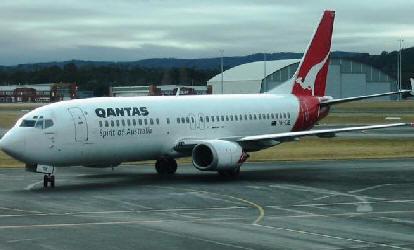
NEWSROOM
 |
NEWSROOM |
|
|
|
|
||||
|
By Mike Mitchell |
|||||
 |
December 16, 2009
-
Groups of
engineers working at Qantas’ heavy maintenance facilities in Sydney,
Brisbane and Avalon will begin stopping work for periods of up to five
business days throughout the rest of December and into January.
The engineers’
union, the Association of Professional Engineers, Scientists and
Managers, Australia (APESMA) said discussions with Qantas for a new
collective agreement had failed to make adequate progress. |
||||
|
A major stumbling
block remains Qantas’ refusal to negotiate about the key issues of
professional recognition and fatigue management. The
highly-qualified professional engineers at Qantas form a small, but
crucial, part of the engineering workforce. They are responsible for
maintaining the safety and airworthiness of the Qantas’ fleet.
APESMA Senior Industrial Officer Alison Rose said several meetings had
been held with Qantas management since professional engineers first took
industrial action in mid-November but had not been fruitful.
Engineers are also demanding company-sponsored professional development
to keep pace with new aviation technology. “Professional engineers feel
they have been left with little choice by Qantas management but to ramp
up industrial action,” Ms Rose said. |
|||||
|
However, there are series issues of professional development and fatigue
that must be addressed by management in the current bargaining round.
“These stopwork periods will inevitably have an impact on Qantas’
maintenance schedule and may impede the airline’s ability to put planes
in the air. We ask passengers to understand that this industrial action
has been taken reluctantly, and is the result of management
stubbornness.”
The Association of Professional Engineers, Scientists and Managers,
Australia (APESMA) is the largest national non-profit organization
representing professional employees including scientists, engineers,
managers, architects, IT professionals, pharmacists, surveyors,
veterinarians, collieries staff and many other professionals. Over
25,000+ members are found in all areas of public and private employment
across
Qantas Airways Limited is the national airline of
Qantas was founded in
Eighty-four year old outback pioneer Alexander Kennedy was the first
passenger, receiving ticket number one. The airline operated air mail
services subsidised by the Australian government, linking railheads in
western |
| ©AvStop Online Magazine Contact Us Return To News |
|